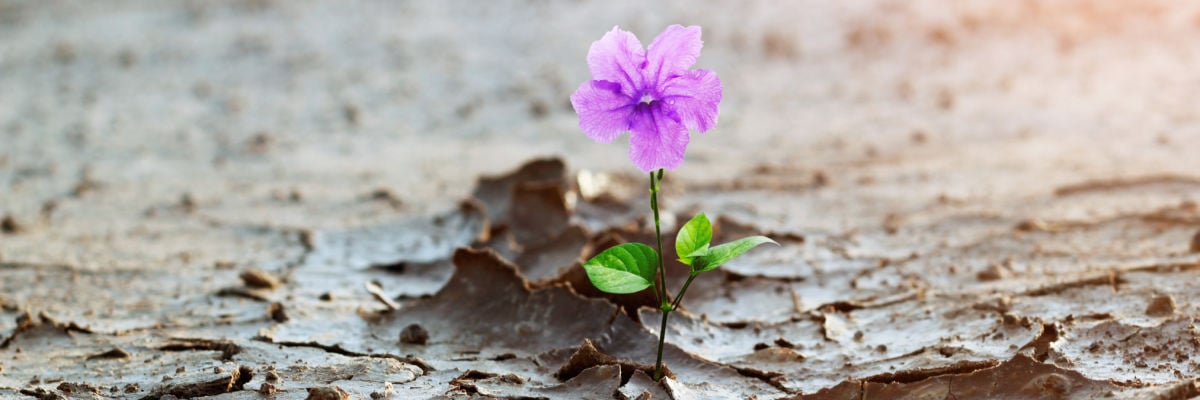
The wilderness and the dry land shall be glad,
the desert shall rejoice and blossom
I don’t think I ever appreciated these lines before moving to a semi-arid climate in Southern California. These American southwest climates are not all that different form the deserts of Isaiah’s imagination. It’s an appealing image in part because we actually know what it looks like when a desert suddenly gets water. It’s beautiful.
But Isaiah’s image is not literal. He is not concerned with the transformation of desert into farmland. These images provide the background for John the Baptist’s question to Jesus in Matthew. “Are you he who is to come?” Or rather, “Is the desert blooming, or not?” And Jesus comes back with a definitive yes: the blind see, the lame walk, lepers are cleansed, the deaf hear, the dead are raised, and the poor have the good news proclaimed to them.
Rains have come in the desert. Those who were thirsty are now experiencing the life that comes from the living waters of God.
But there’s another little comment that Jesus adds here: “Blessed is he who takes no offense at me.”
I wonder if part of this last line is a special message to John the Baptist. John is in prison, and in most readings of this Gospel the question he sends to Jesus expresses a kind of doubt that we never would have expected back in those early days of “Behold the Lamb of God.” Even the greatest prophet—really, the greatest prophet, according to Jesus a few verses down—can experience doubt. And for John the Baptist, the ascetic outcast, the idea of “offense” must warm the heart. It’s almost like Jesus is telling his cousin, through the messengers: My brother, rest assured, I will be every bit as upsetting as you hoped I would be.
What is so offensive about Jesus? From elsewhere we can get a pretty clear picture: healing on the Sabbath; claiming to forgive sins; casting out demons by his own authority. These things are offensive, potentially, in their suggestion that Jesus is God. No one but God could do these things and get away with it. But this is a difficult, scandalous idea, for the one doing these things is a man. Indeed, he is a man who is doubted even by the greatest of prophets.
What does this have to with Advent? Let’s just recall once again that Advent isn’t first about Christmas; it’s first about the second coming of the Lord. The epistle lesson from James brings to mind the image of a farmer waiting for his yield. The fruits of the earth take time. They cannot be rushed. Anyone who grows things can understand the analogy.
Read how the Catholic spiritual writer Carryl Houselander describes this patient waiting:
The law of growth is rest. We must be content in winter to wait patiently through the long bleak season, in which we experience nothing whatever of the sweetness of realization of the Divine Presence, believing the truth, that these seasons which seem to be the most empty are the most pregnant with life. It is in them that the Christ-life is growing in us, laying hold of our soil with strong roots that thrust deeper and deeper, drawing down the blessed rain of mercy and the sun of Eternal Love, through our darkness and heaviness and hardness, to irrigate and warm those roots.
The soil must not be disturbed. Above all we must not disturb it ourselves by our own egoism. We must not turn it over and dig it up by anxieties and scruples, we must not shift it by fretting for a sense of personal perfection; to feel sinless that we may feel free from the pain of guilt and anxiety; to feel pure for the sake of vanity.
When you think about it like this, waiting for seeds to sprout—or for fruit to ripen—is very much like waiting for a baby to be born. Elsewhere, in Romans 8, St. Paul likens the whole creation to a woman in labor, struggling and waiting for the final redemption.
The patience of Advent is meant to train us far beyond the patience of waiting to open presents until Christmas, although we all know that such patience can feel like quite the trial when you’re a certain age! We are waiting for the fulfillment of all things in Christ. We are waiting for the end of the world. We are waiting for the end of our own lives. We are waiting for judgment.
That’s an odd companion to the idea of rain in the desert. But consider whether the rain in the desert is exactly the kind of judgment envisioned by Matthew. The desert ground cannot control the coming of rain. It can only wait. Seeds in the desert are a wonderful image of patience. They may go many months, many seasons even, before enough water comes to bring them life. Likewise, we do not control the Holy Spirit.
This is a hard lesson but a powerful one. Remember, in this light, St. Thérèse of Lisieux, whose most profound insight was that her life did not need to be profound, but that holiness might come from small acts of love. I know that I need to hear this, because I am always tempted to think that if only I would find the right tool, the right strategy, I could fix everything for myself, for my family, for the Church, for the world! Yet Advent reminds us of a different kind of work—the hard work of patience, of rest, of accepting the fact that we are not in control of the world, and that God is working his purposes out in his own time.



